I write a stack struct, and make it conforming to IteratorProtocol and Sequence protocol. The next function is mutating. So I suppose the iteration of the stack will mutate the struct.
import Foundation
struct Stack<Element> {
var store:[Element] = []
mutating func push(_ element:Element) {
store.append(element)
}
mutating func pop() -> Element? {
return store.popLast()
}
}
extension Stack: Sequence, IteratorProtocol {
mutating func next() -> Element? {
return pop()
}
}
var stack = Stack<Int>()
stack.push(1)
stack.push(2)
stack.push(3)
for s in stack {
print(s)
}
print(stack)
I don't understand why the stack is unchanged. I suppose it become empty after the mutating next() calls.
